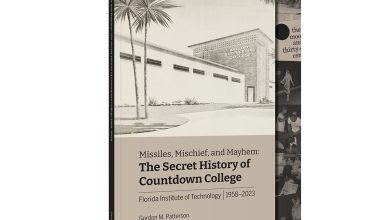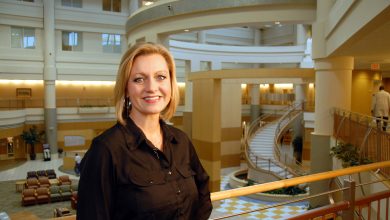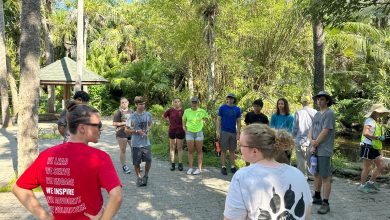#SpaceHealth: A Summer of Writing About Science
By William Grimaldi, BS in Communication
For this summer we shared an opportunity in my writing about science course to research and report the effects of space on the human body. We teamed up with Florida Today and NASA to conduct our report. We had the opportunity to interview a retired astronaut from the past Winston Scott about his experience with NASA.
For astronauts, it is important to be healthy when they are inactive or not enduring physical training for space travel. Astronauts are almost as fit as athletes. According to NASA, the cardiovascular system in space is slowed down because there is less gravity.
On earth, gravity pulls blood into lower parts of the body. The most important symptom of concern is fainting. NASA has provided several tests and conditioning in order to counter this effect in space. In space, astronauts have resistances and cardio equipment to stay fit.
Astronauts are tested before, during, and after space flights. These tests also look for any changes in their blood pressure levels when they return from space. These evaluations helped figure out what is needed to perform normal duties abroad the International Space Station’s ISS.
After flight, astronauts have to adapt the earth’s gravity. Some astronauts can barely walk. This research will benefit those who suffer from emphysema and tuberculosis.
The cardiopulmonary data obtained during a series of missions will help focus more on mechanisms. This research that is made of cardiac output will benefit animals and humans.
We also had the opportunity to travel to Kennedy Space Center. They gave us an exclusive tour and we interviewed Chris Cassidy while he currently stationed on the ISS. We experienced the reporter view of Kennedy Space Center. We also met Robert Cubana who is a former NASA astronaut, currently serves as the tenth director of NASA’s John F. Kennedy Space Center. Cabana told us about the new programs that NASA is working on. NASA is working on trying to extract an asteroid to conduct scientific research. NASA is also continuing to reach out to Mars.
As student reporters we gathered information to make videos submitted to our Facebook page FT3 at FIT. We also created a twitter hashtag, #SpaceHealth. We were also required to product articles on the research that we conducted and will be submitted to Florida Today as a story.





